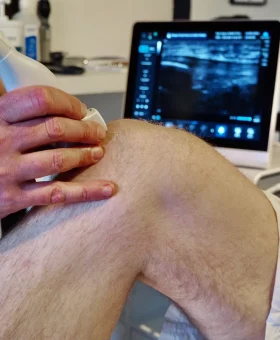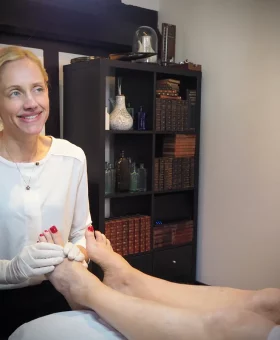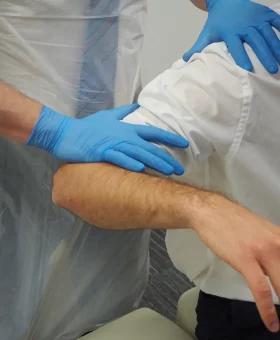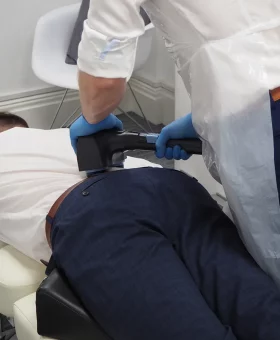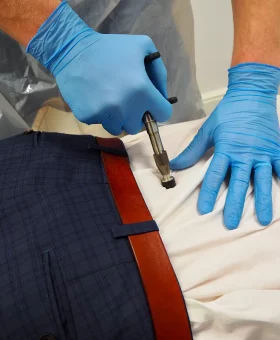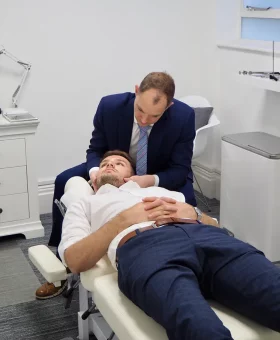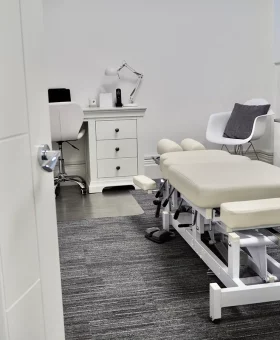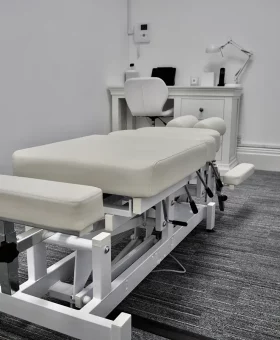Corporate
Health & Wellbeing
23% of All Sickness Absence Within the U.k. Is Attributed to Back, Neck and Muscle Pain: That’s More Than Any Other Cause.
Whether they’re in the office or working from home, we can help your team members to stay fit & focused, productive & pain free.

The Health of Your Team for the Wellbeing of Your Business.
Musculoskeletal health conditions are the most common cause of sickness absence within the UK, resulting in 30.6 million lost working days each year. Increasingly, companies understand the corporate responsibility they have over the health of their staff, not to mention the commercial sensibility that their employees are empowered to work consistently and efficiently.
More recently, companies within the UK have made a signifiant increase in investment to corporate wellbeing programs. Despite this, there is still a distinct lack of action towards the prevention of musculoskeletal health problems. It’s our mission to help your staff and your business by improving musculoskeletal health of those within your organisation.
Watch Our Corporate Health & Wellbeing Video
The Impact of Musculoskeletal Problems.
- 1 in 8 of the working age population reported having a musculoskeletal (MSK) problem.
- Employment rate for people who report MSK as their main health condition is 59.7%.
- In 2013, more days of sickness absence were attributed to back, neck and muscle pain than any other cause. That’s 23% of all working days lost.
- 33% of long-term sickness absence within England is attributed to MSK.
- In 2015, 13% of Employment and Support Allowance (ESA) recipients reported MSK as their main condition.
- In 2010, ESA claimants with MSK were more likely than those with other conditions, to attribute their health conditions to work – 36% related it to work.
- An estimated 9.5m working days were lost due to work related MSK, an average of 17 days lost for each case. This represents 40% of all days lost due to work related ill-health in 2014/15.


How We Want to Help Your Organisation.
Our Objectives.
- Improve the health, wellbeing, satisfaction and productivity of your employees through the treatment of work related pain and injury.
- Reduce the cost and practical burden of sickness and absenteeism that your company faces due to musculoskeletal conditions suffered by your employees.
- Prevent employees from developing work related pain and injury, and any subsequent absenteeism, through improved working practices.
Prevention, Early Intervention & Rehabilitation.
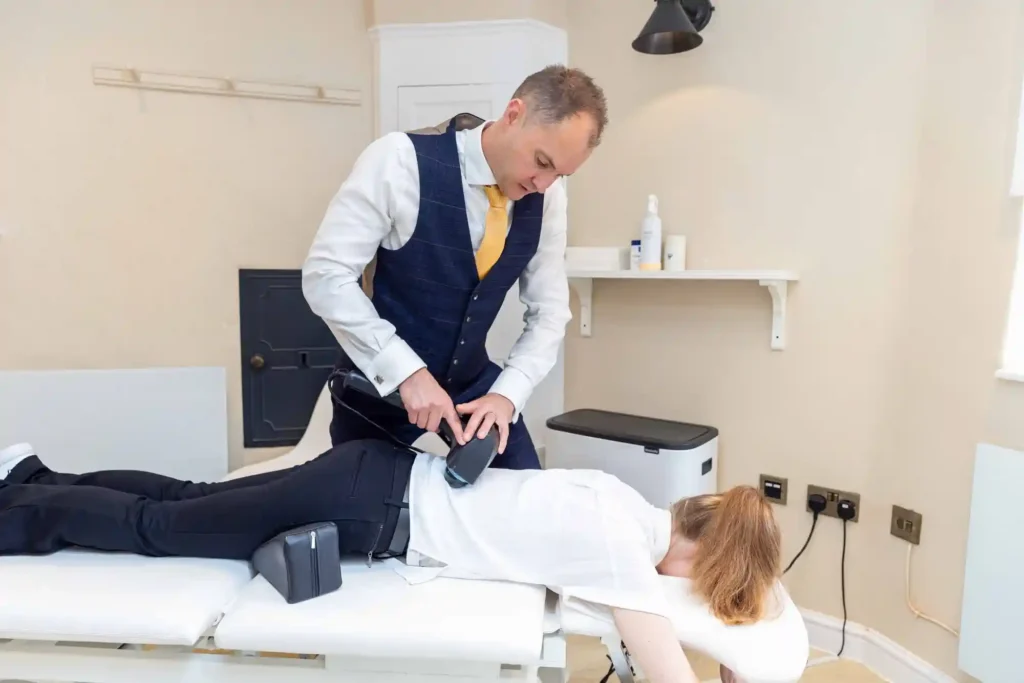
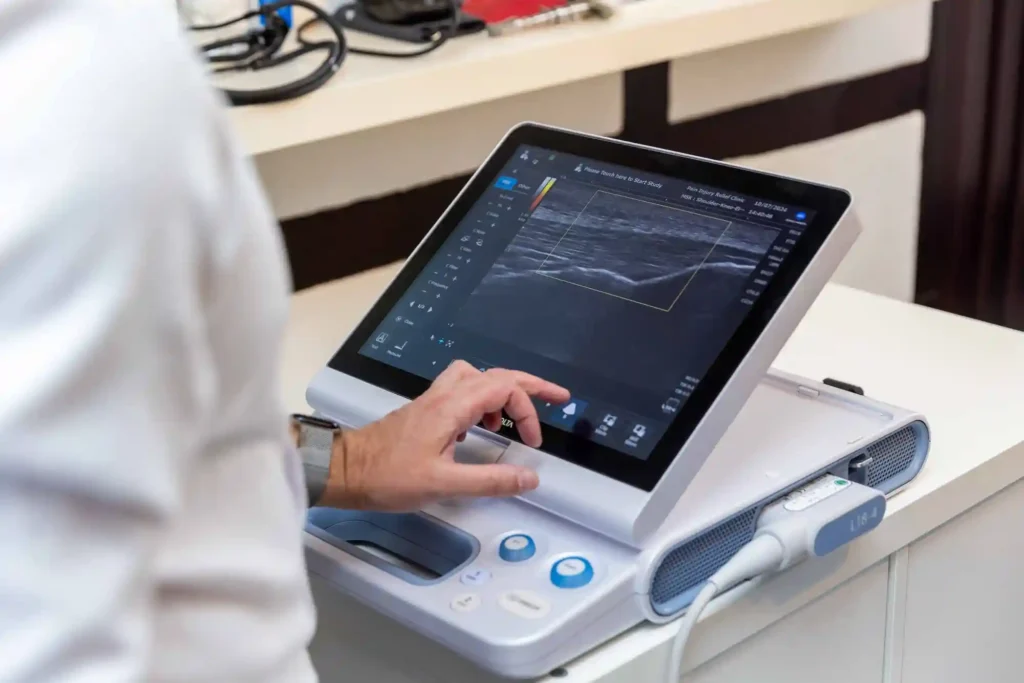
Diagnosis & Treatment of Pre-existing Pain & Injury.
We begin by taking a thorough history of an employee’s complaint, as well as a full past medical history, family history and history of other factors which can influence the genesis of such a complaint. This is followed by a comprehensive physical examination consisting of: orthopaedic, neurological, postural, and gait evaluation. It’s our thorough approach to examination that allows us to identify the factors that are contributing to the development and the continuation of an employee’s pain or injury. If further testing (i.e Blood tests) or investigative imaging (i.e An MRI scan, CT scan, Ultrasound scan, or X-ray) is required, we can refer swiftly and efficiently to an appropriate specialist.
Our modern, research driven approach to patient care, allows our clinicians to carefully select and utilise the chiropractic treatment and adjunctive physical rehabilitation that will achieve the best possible result for your employees, in the shortest space of time, at the lowest possible cost to your organisation, and with minimal disruption to working practice.
Whether a member of your team is suffering from acute pain following injury, trauma, surgery etc, or chronic pain, effective treatment is possible. Pain is not a trivial symptom and should not be ignored. Research shows pain is a potent stressor on peoples lives that interferes with normal recovery and functioning. When pain is controlled, patients suffer less, sleep better, have more vitality to enjoy daily activities, and are more productive in the work place.
- Headaches (Cervicogenic)
- Neck Pain
- Mid Back Pain
- Low Back Pain
- Leg Pain & Sciatica
- Shoulder Pain
- Elbow Pain
- Wrist & Hand Pain
- Pelvic Pain
- Hip & Groin Pain
- Knee Pain
- Shin Pain
- Foot & Ankle Pain
- Jaw Pain
- Complex Regional Pain Syndrome
- Widespread Pain (Fibromyalgia)
- Phantom Limb Pain
- Osteoarthritis/Degenerative Joint Disease/Wear & Tear
- Sports Injury
Our Evidence-based Approach to Patient Care.
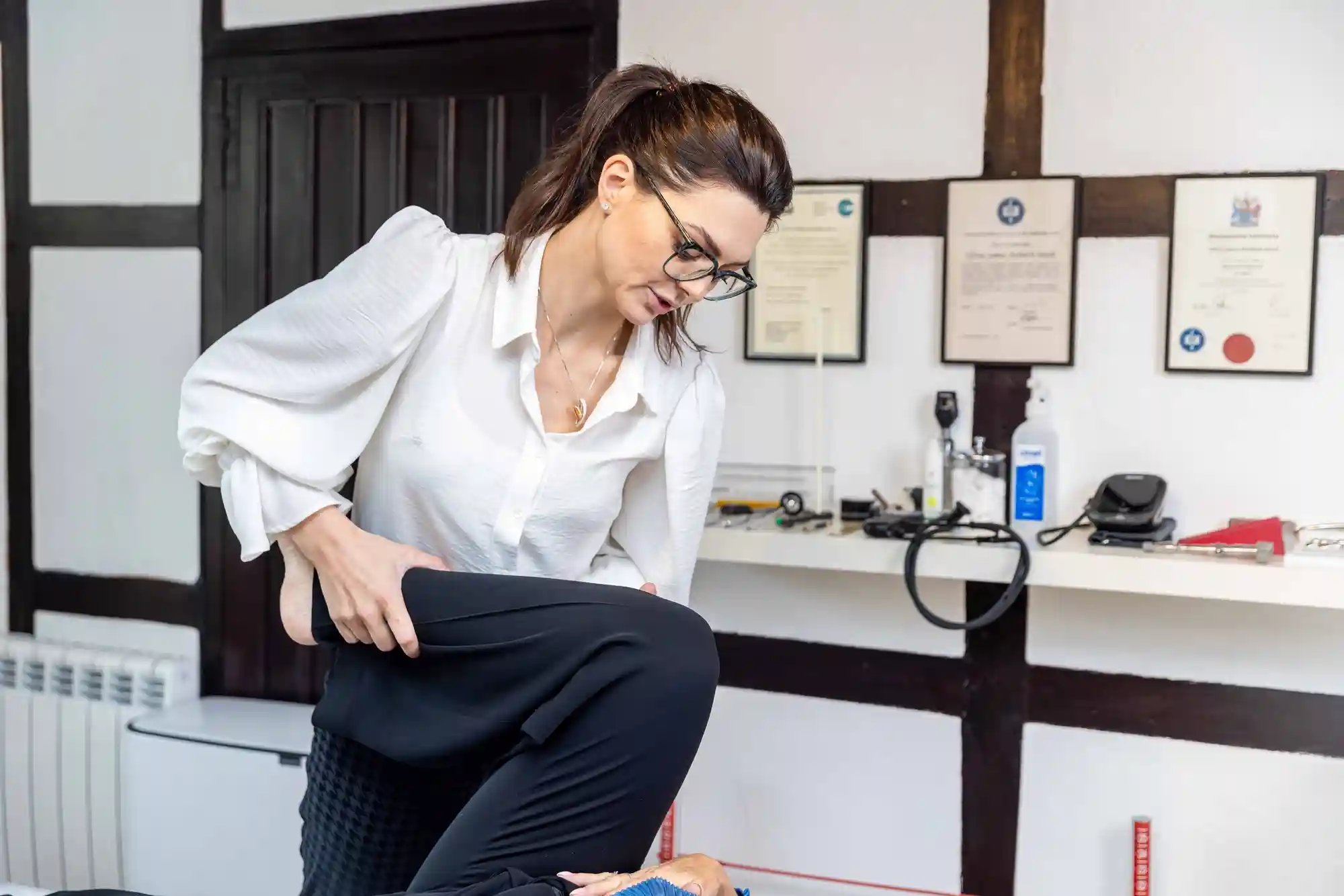
Chiropractic & Physical Therapy Treatment.

Rehabilitative Exercise Prescription.
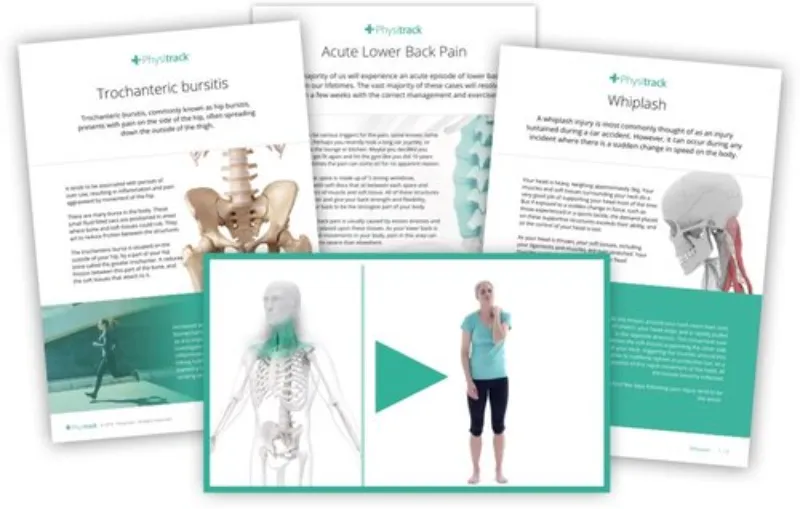
Education, & Self Care.
A major part of long-term recovery from pain or injury is the development of a patient’s knowledge and understanding around their complaint, and how they should go about managing it. Through education, we help patients to become more independent, autonomous, and self-sufficient, reducing the need for them to consult with a clinician or therapist in the first place.
Through lectures, workshops, and one to one appointments we’ll educate your employees so they understand the things they can be doing every day to support their own musculoskeletal health. We’ll cover topics like pain neuroscience, ergonomics and anthropometrics, posture and movement, relaxation therapies and corrective exercises etc.

Who is Our Health & Wellbeing Scheme for?
Our Employee musculoskeletal Health and Wellbeing scheme is for any business or organisation looking to promote a new standard of excellence in corporate wellbeing. We work with companies large and small, and do not place a limit of size of organisation, or number of employees. We work across different sectors, looking after employees within a range of roles, from those who spend the majority of their day sitting at a desk, to those engaged in work with a high physical demand, such as construction.
Wellbeing initiatives within organisations have expanded significantly over the last decade, with companies becoming increasingly aware of the commercial advantages they yield. Employees have come to expect more from their employers, with wellbeing schemes helping to attract the cream of the professional crop.
However, from a strictly clinical standpoint, it’s our experience that funds earmarked for wellbeing schemes are often misappropriated and misdirected. For example: We know that each year companies spend an inordinate amount of their budget on over-priced ergonomic office furniture with the aim of reducing employee pain and discomfort. Unfortunately, there’s little to no scientific evidence that replacing office furniture helps to achieve this. Read on further to find out more…
Let us take a cost effective and evidence based approach to helping your employees to become pain and injury free through, and most importantly, remain pain and injury free through maintenance care.
Physical Health + Mental Health
Companies face an ever growing responsibility to promote and improve employee mental wellbeing; the importance of which cannot be overstated. However, what about physical wellbeing? Furthermore, how do we draw a distinction between physical and mental wellbeing? Is someones brain and nervous system part of their body, or part of their mind?
Employees with MSK problems are at increased risk of stress, anxiety and/or depression. A recent study found that 33.9% of older adults (over 50 YOA) with MSK pain also have persistent anxiety issues and 22% have persistent depression. Employees are typically anxious about the future if they do not know how long-term any problem may be and how much it will impact on their ability to do their job.

Mental health also has a significant impact on a person’s ability to deal with an MSK problem. A person with depression is likely to take longer to recover from back pain, and will often require more time away from work.
This is why an employer looking to minimise the burden of MSK problems within the workplace should also support practices to improve mental health and wellbeing. It is also important for employees to understand and acknowledge that dealing with an MSK problem may necessitate support for their mental health. This is not to say that MSK pain is somehow psychosomatic; but the close link between good MSK health and good mental health means that both should be taken into account.
From a more evidence informed perspective, we might consider the distinction between ‘Physical Health’ and ‘Mental Health’ to be somewhat outdated and reductionist. We might be better placed to simply talk about ‘Health’ as a whole. With that in mind we would encourage companies to consider how well they are supporting the health of their employees.
Often, the first step is to ensure that health and wellbeing are embedded into organisational culture. Strong leadership is crucial in setting this precedent. The second step is to enable open conversation, without risk of judgement, about any background factors that may be affecting the impact of the MSK problem on the employee, whether in or outside work.
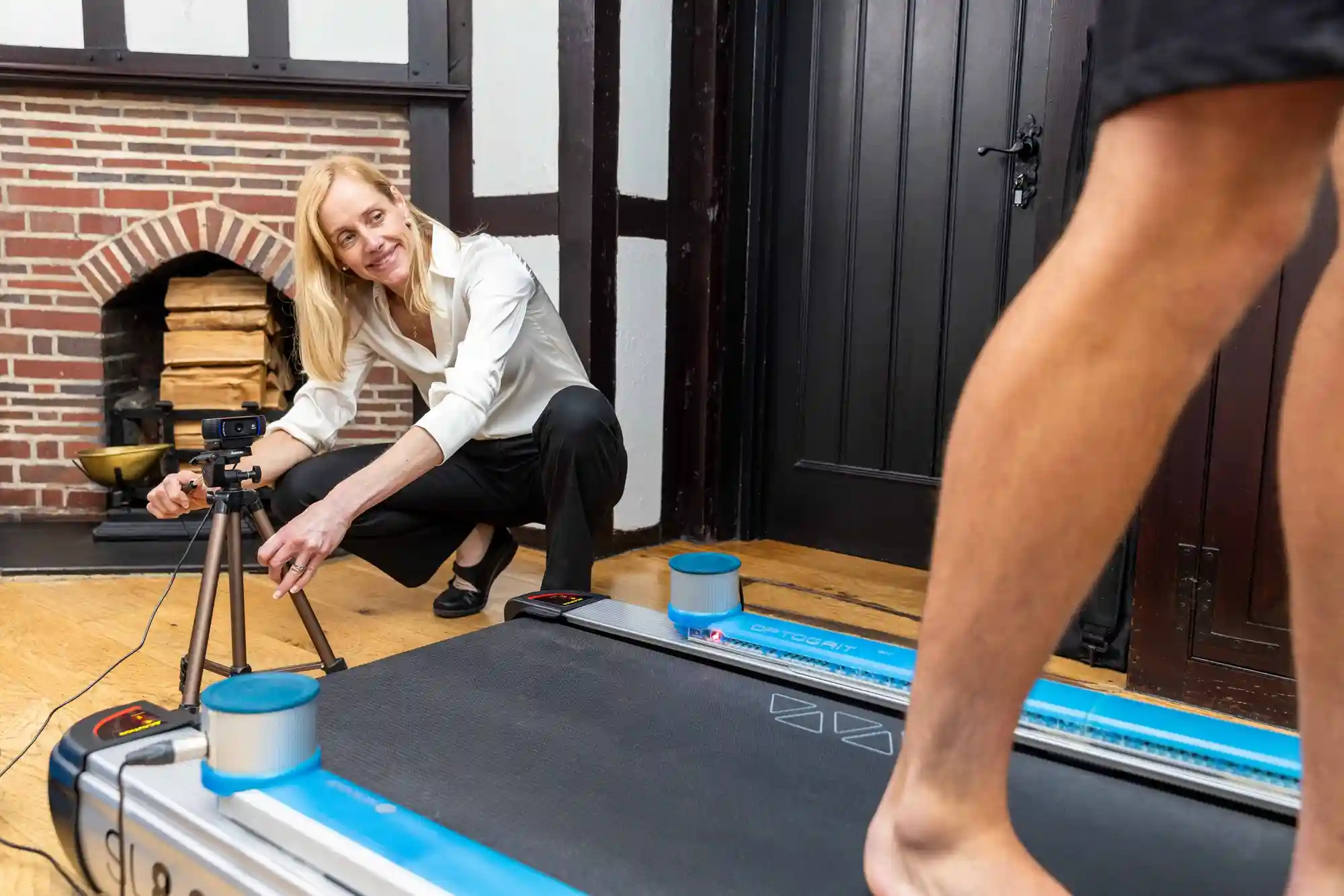
How Much Will It Cost Our Organisation?
Prices start from just £59 for the assessment or treatment of an employee.
Contact us below to discuss your options so we can help you to implement the services that will best suit the needs of your organisation.





















